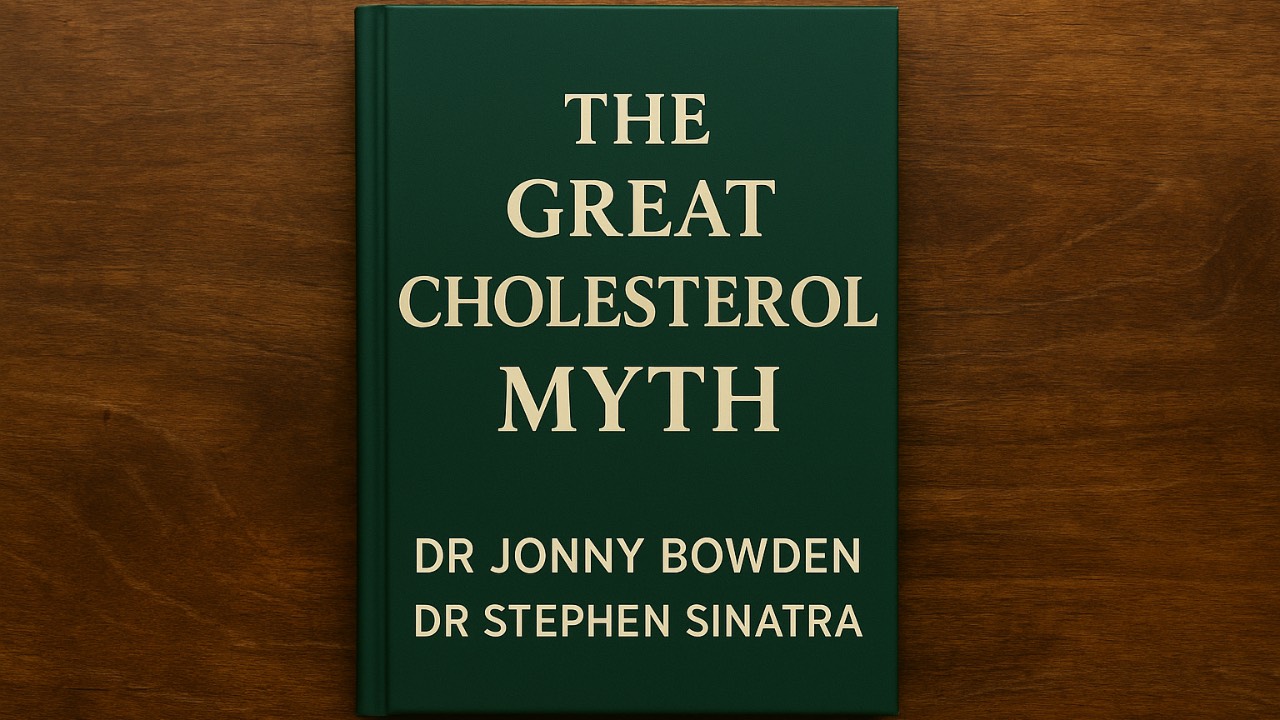The Great Cholesterol Myth: What Midlife Women Need to Know

For many women, the first unexpected sign that their body is changing during perimenopause or menopause doesn’t come as a hot flush or mood shift—it shows up in a blood test.
“Your cholesterol has gone up.”
Often followed by:
“We need to keep an eye on this,” or
“We may need to talk about medication.”
This moment can feel alarming and confusing, especially if nothing about your diet or lifestyle has changed.
But what if the story we’ve been told about cholesterol isn’t the full picture?
This is where the book The Great Cholesterol Myth by Dr Jonny Bowden and Dr Frank Sinatra offers an invaluable perspective—one that is particularly relevant for midlife women.
Why This Book Matters for Midlife Women
The traditional message has been:
High cholesterol = high heart disease risk
However, The Great Cholesterol Myth argues that focusing solely on cholesterol oversimplifies a complex condition. The authors highlight that cardiovascular risk is driven far more by:
-
chronic inflammation
-
oxidative stress
-
insulin resistance and blood sugar imbalance
-
high triglycerides
-
poor metabolic flexibility
-
LDL particle size and quality
These mechanisms shift dramatically during menopause.
This means that for many women, rising cholesterol may be a marker, not a cause, of underlying metabolic change.
Menopause, Metabolism and Cholesterol: A Bigger Picture
As oestrogen declines, several important changes occur:
-
cholesterol production naturally increases
-
inflammation tends to rise
-
blood sugar control becomes more difficult
-
abdominal fat distribution shifts
-
triglycerides often increase
-
cell membranes become less flexible
These changes affect cardiovascular risk more than cholesterol alone.
Understanding this can turn a worrying result into an opportunity for targeted support.
LDL: A More Nuanced View
One of the most powerful messages in this book is that LDL cholesterol is not a single, uniform substance.
There are different types:
-
small, dense LDL (more damaging)
-
large, buoyant LDL (less associated with risk)
Standard blood tests rarely distinguish between them, meaning women are often making decisions based on incomplete information.
This nuance is particularly relevant during menopause, when lipid patterns shift.
The Emotional Impact
Many women feel:
-
frightened
-
blamed
-
judged
-
pressured into medication discussions
simply because of a number on a lab report.
A more informed, mechanism-based understanding can replace fear with clarity.
Where This Fits With Emerging Research
What makes this book a perfect companion to The Longevity Nutrient is that both challenge a purely cholesterol-centric model.
One highlights:
“Cholesterol isn’t the sole villain.”
The other explores:
“There may be supportive nutrients influencing lipid metabolism and cellular resilience.”
Together, they offer a broader, more empowering perspective for midlife women.
The Takeaway for Midlife Women
If your cholesterol has risen during perimenopause or menopause, the key questions are:
-
What is driving this change?
-
What is happening with inflammation?
-
What do your triglycerides look like?
-
How is your metabolic health?
-
What support does your body need right now?
Rather than focusing exclusively on lowering cholesterol, addressing the underlying drivers of cardiovascular risk is far more effective and meaningful.
Why I Recommend This Book
I recommend The Great Cholesterol Myth because it:
-
challenges outdated assumptions
-
encourages deeper investigation
-
validates women who feel confused by rising cholesterol
-
aligns with a root-cause, whole-body approach
-
supports informed decision-making
For midlife women, it offers reassurance and perspective at a time when many feel vulnerable.
Final Thoughts
Cholesterol is not the enemy.
For midlife women, the goal is not simply to reduce a number, but to support:
-
metabolic health
-
inflammation balance
-
mitochondrial function
-
hormonal transition
-
cardiovascular resilience
Understanding the bigger picture allows you to make decisions based on your unique physiology—not fear.
If you’d like help interpreting your cholesterol results or understanding what your body may be signalling during menopause, I’d love to support you. Natural Menopause Mastery
Other cholesterol resources
Why Cholesterol Rises With Menopause
Interview with Dr Jonny Bowden - Youtube (also podcast # 150)


